 TEL:
+86-13102802206
TEL:
+86-13102802206
 Email:
fencenetting@china.com
Email:
fencenetting@china.com
 Language
Language
 TEL:
+86-13102802206
TEL:
+86-13102802206
 Email:
fencenetting@china.com
Email:
fencenetting@china.com
 Language
Language


In the vast landscape of industrial materials, galvanized iron wire stands as a cornerstone product, renowned for its superior corrosion resistance and versatility. This fundamental material is engineered by applying a protective zinc coating to steel or iron wire, significantly extending its lifespan and enhancing its performance across a myriad of demanding environments. Its importance is underscored by growing global demand, driven by infrastructure development, agricultural needs, and industrial applications requiring durable and cost-effective solutions. The market for galvanized wire products has seen consistent growth, with projections indicating a compound annual growth rate (CAGR) of over 4% in the coming years, reflecting its indispensable role in construction, fencing, and many other sectors.
The selection of galvanized wire is critical for projects where exposure to moisture, chemicals, or extreme temperatures is a concern. Unlike untreated iron wire, the zinc layer acts as a sacrificial barrier, corroding before the underlying steel, thus preventing rust and maintaining structural integrity. This protective mechanism makes it ideal for long-term outdoor applications and harsh industrial settings. Our commitment to providing high-quality solutions ensures that every batch meets stringent international standards, offering reliability and peace of mind to our B2B clients who prioritize longevity and performance in their operations.
The production of galvanized iron wire is a sophisticated multi-stage process, ensuring a uniform, durable zinc coating that adheres strongly to the iron core. This meticulous process typically begins with high-quality steel wire rods, which undergo a series of transformations to achieve the desired properties and finish. The primary raw material is typically low carbon steel wire rod (e.g., SAE 1006, SAE 1008), chosen for its ductility and strength, which are essential for subsequent drawing processes. These rods are first descaled, often mechanically and then chemically through acid pickling, to remove impurities and prepare the surface for optimal zinc adhesion.
Following descaling, the wire is subjected to a drawing process, where it is pulled through a series of progressively smaller dies. This reduces the wire's diameter to the specified gauge, increasing its tensile strength and improving its surface finish. Depending on the desired hardness and ductility, an annealing process (heat treatment) might be applied before or after drawing, to soften the wire and enhance its workability. The crucial galvanizing stage then commences, typically through two main methods: hot-dip galvanizing or electro-galvanizing. Hot-dip galvanizing involves immersing the cleaned wire into a bath of molten zinc at temperatures around 450°C (850°F), forming a metallurgical bond. Electro galvanized iron wire, on the other hand, involves an electrochemical process where zinc ions are deposited onto the wire surface from an electrolyte solution, often resulting in a thinner, more uniform, and brighter finish.

Quality control is integrated at every step, adhering to international standards such as ISO 9001 for quality management and ASTM A641 (Standard Specification for Zinc-Coated (Galvanized) Carbon Steel Wire) for product specifications. Key parameters like zinc coating weight, wire diameter, tensile strength, and elongation are rigorously tested using precise instrumentation. This ensures that the final galvanized iron wire product not only meets but often exceeds industry benchmarks for corrosion resistance, mechanical strength, and longevity. The expected service life of hot-dip galvanized wire can range from 20 to 50 years, depending on the zinc coating thickness and environmental conditions, making it a highly durable solution for industries like construction, agriculture, and utility infrastructure.
Understanding the technical specifications of galvanized iron wire is crucial for its appropriate application. These parameters directly influence the wire's performance, durability, and suitability for specific projects. The table below outlines typical ranges and values that define various types of galvanized wire, ensuring that B2B clients can select the optimal product for their unique operational requirements, whether for tensile strength-critical applications or those demanding superior corrosion protection.
| Parameter | Typical Range/Value | Description/Industry Standard |
|---|---|---|
| Wire Diameter (Gauge) | 0.15mm - 6.0mm (BWG 8 - BWG 36) | Commonly measured in millimeters or Birmingham Wire Gauge (BWG). Crucial for application suitability. |
| Tensile Strength | 350 - 550 N/mm² (MPa) | Indicates the wire's resistance to breaking under tension. Varies by carbon content and drawing process. ASTM A641. |
| Zinc Coating Weight | 30 - 300 g/m² | Directly impacts corrosion resistance and lifespan. Hot-dip galvanizing typically has thicker coatings. ASTM A641. |
| Elongation | 10% - 25% | Measures ductility, i.e., how much the wire can stretch before breaking. Important for bending and knotting applications. |
| Zinc Layer Adhesion | No flaking or cracking during wrap test | Ensures the zinc coating remains intact even when bent or worked. Tested via wrapping around a mandrel. |
| Surface Finish | Bright, smooth, uniform, spangle/no-spangle | Hot-dip typically has a spangle finish; electro-galvanized is often smoother and brighter. |
These parameters are not merely numbers; they represent the engineering integrity of the wire. For instance, a higher zinc coating weight provides superior corrosion protection, making the wire suitable for marine environments or areas with high humidity. Similarly, the tensile strength dictates its load-bearing capacity, crucial for structural applications or forming specialized products like spring wires. Our technical team works closely with clients to specify the exact parameters required, ensuring optimal performance and compliance with industry-specific regulations.
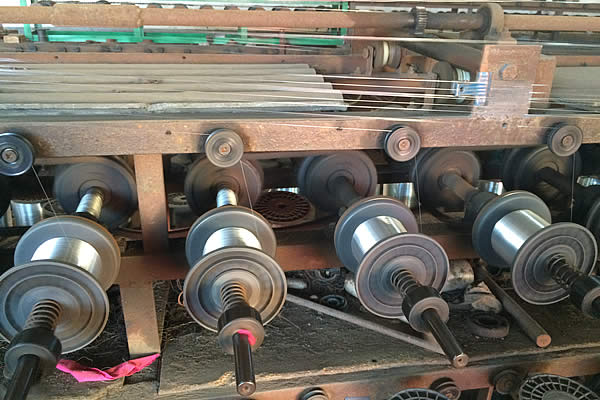
The adaptability and robust characteristics of galvanized iron wire make it indispensable across a broad spectrum of industries. Its corrosion resistance is particularly advantageous in outdoor and challenging environments, extending the lifespan of products and infrastructure, which translates to reduced maintenance costs and enhanced operational efficiency. This material finds its core utility in applications where durability and long-term performance are paramount, offering significant advantages over untreated wire due to its protective zinc coating. It’s a foundational element in many large-scale industrial projects.
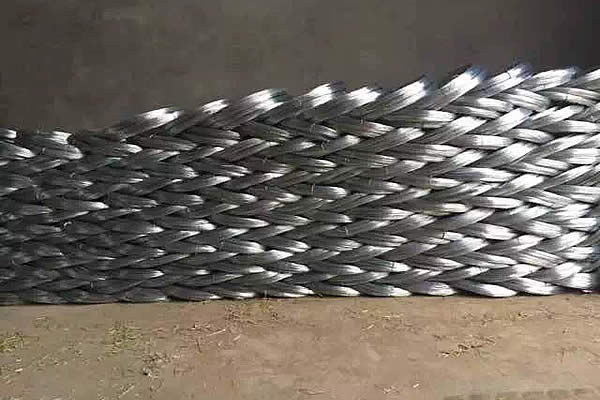
Key application areas include:
In typical application scenarios, such as the construction of high-security perimeters or agricultural enclosures, the use of galvanized wire ensures minimal maintenance and maximum operational uptime. For instance, in petrochemical facilities, where exposure to corrosive elements is common, galvanized iron wire netting for protective caging or support structures offers an economical and highly effective anti-corrosion solution, leading to significant long-term savings compared to alternative materials. Its robust nature and inherent resistance to degradation make it a preferred choice for projects demanding both reliability and cost-efficiency.
The technical advantages of galvanized iron wire stem directly from its zinc coating, which imparts superior properties compared to plain steel wire. The primary benefit is its exceptional corrosion resistance, crucial for outdoor and industrial applications. Zinc provides both a physical barrier and cathodic protection; if the coating is scratched, the zinc preferentially corrodes, protecting the underlying steel from rust. This sacrificial action is a key differentiator, ensuring the wire's integrity even in challenging conditions. The longevity it offers directly translates to reduced lifecycle costs and less frequent replacement for end-users.
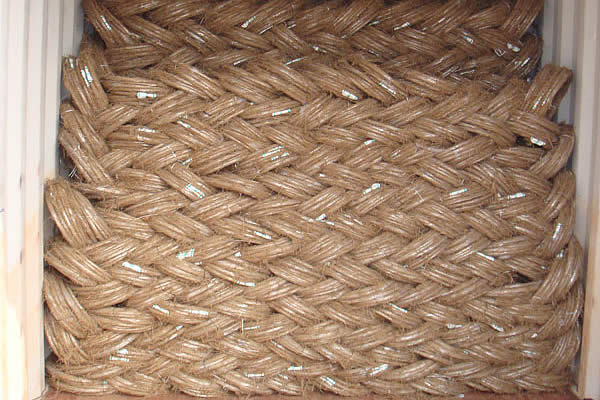
Beyond corrosion resistance, galvanized iron wire exhibits excellent mechanical properties. Depending on the base steel's carbon content and the drawing process, it can achieve high tensile strength, ranging from 350 MPa to 550 MPa, making it suitable for load-bearing applications. Its ductility, typically measured by elongation percentages of 10-25%, ensures that the wire can be bent, twisted, and fabricated without cracking or losing its protective coating. This workability is vital for manufacturing complex wire products like mesh, nails, and springs. The smooth and uniform surface finish also contributes to easier handling and improved aesthetic appeal for various finished products. These combined attributes make galvanized wire a highly reliable and economically viable material choice for long-term projects where both performance and durability are non-negotiable.
Choosing the right manufacturer for galvanized iron wire is paramount for B2B clients, as it directly impacts product quality, consistency, and project success. A reputable manufacturer differentiates itself not only through competitive pricing but also through adherence to stringent quality controls, robust certification portfolios, and the capability to provide tailored solutions. Factors such as adherence to ISO 9001 quality management systems, certifications like ASTM or CE, and a track record of consistent product performance are critical indicators of reliability. Our company prides itself on decades of service, holding multiple international certifications, ensuring that every delivery meets the highest standards expected by global industries.
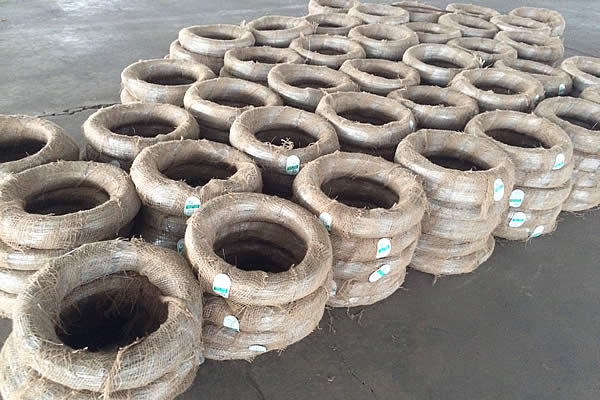
Customization is a key offering for modern industrial demands. Clients often require specific wire diameters, tensile strengths, zinc coating weights, or even specialized packaging (e.g., specific coil weights, spools) to integrate seamlessly with their production lines. For example, a client manufacturing agricultural fencing might require a specific gauge of galvanized iron barbed wire with a heavy zinc coating for extreme weather conditions, while a construction firm might need specific coil sizes of galvanized iron binding wire for efficiency on-site. Leading manufacturers work closely with clients to understand their precise needs, offering bespoke solutions that go beyond standard product listings. This consultative approach ensures that the client receives a product perfectly suited to their application, optimizing their processes and reducing waste. Our commitment extends to delivering precise specifications with consistency, supported by advanced manufacturing capabilities and a dedicated technical support team.
A prime example of the efficacy of galvanized iron wire is its extensive use in large-scale industrial fencing projects, particularly in harsh environments like coastal industrial zones or chemical plants. For a recent project involving a perimeter fence for a new petrochemical complex, the client required a fencing solution that could withstand constant exposure to corrosive salt spray and chemical fumes, ensuring long-term security without frequent maintenance. Traditional untreated steel wire would degrade rapidly, incurring significant replacement costs within a few years.
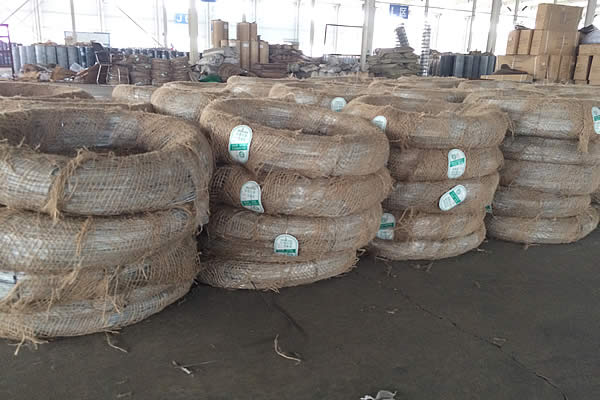
Our solution involved supplying heavy-gauge galvanized iron wire netting with a zinc coating weight exceeding 200 g/m², ensuring enhanced sacrificial protection. This netting was integrated into a robust chain-link fence system, designed to meet strict security and durability standards. After five years in service, the fencing shows minimal signs of corrosion, maintaining its structural integrity and aesthetic appeal, a testament to the longevity of the galvanized coating. This performance significantly surpassed the client's expectations, demonstrating considerable savings in maintenance and replacement costs. This real-world application underscores the technical advantages and economic benefits of specifying high-quality galvanized wire for critical infrastructure projects, providing a reliable and durable barrier solution.
Our commitment to quality assurance is deeply embedded in every stage of our production process for galvanized iron wire. We implement rigorous testing protocols, from raw material inspection to final product verification, ensuring each coil meets precise specifications for diameter, tensile strength, zinc coating weight, and adhesion. Our quality management system is certified to ISO 9001, providing our B2B clients with the confidence that they are receiving products of consistent and superior quality. Detailed test reports and material certificates are provided with every shipment, affirming compliance with relevant industry standards like ASTM A641.
Understanding the critical nature of supply chain efficiency, we prioritize streamlined delivery processes. Our logistics team works diligently to ensure timely and secure shipments globally, optimizing for both cost-effectiveness and rapid transit. We offer flexible packaging solutions, including various coil weights and spool types, to facilitate easy handling and integration into client operations. For any unforeseen issues or technical queries, our dedicated customer support team is available to provide expert assistance, ensuring complete satisfaction long after delivery. This comprehensive approach, combining robust quality with proactive support, underpins our reputation as a trusted partner in the supply of high-performance galvanized wire.